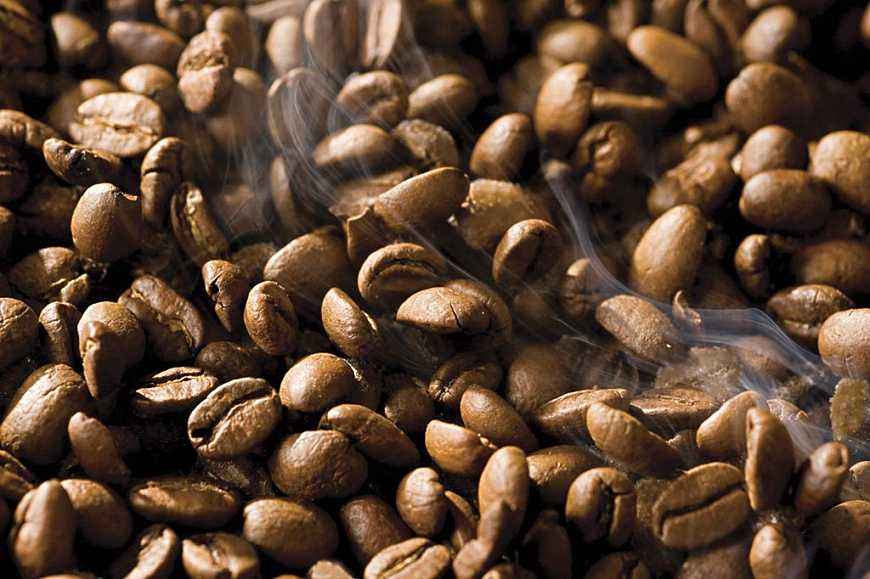Introduction of Burundian SL28 coffee beans in Naduwei Manor
Follow the caf é (Wechat official account vdailycom) and found that Beautiful Cafe opened a small shop of its own.
Lundy SL28 has a berry sour taste similar to that of the famous Kenya bean, but also has a unique black tea texture and a soft taste. It is recommended to warm the cup. The sour taste is not obvious, and you can taste the soft tea.
Every time you try a new variety of coffee, it's like an adventure, and you get something each time. Not only understand the beans, but also deepen the understanding of the producing areas.
Burundi, located south of the equator in east-central Africa, is a small country with a large population. 70% of the country's income comes from agriculture, but the ability to withstand natural disasters is extremely low because of the backward agricultural infrastructure. It is recognized as one of the least developed countries in the world. When purchasing coffee beans, we follow the principle of fair trade and are eager to help coffee farmers achieve sustainable development.

Burundi is located south of the equator in east-central Africa. It is bordered by Rwanda to the north, Tanzania to the east and south, Congo (Kinshasa) to the west, and Lake Tanganyika to the southwest. There are many plateaus and mountains in the territory, most of which are composed of the plateau on the east side of the East African Rift Valley, with an average elevation of 1600 meters above sea level, which is known as the "mountain country". More than half of them are located on the famous Lake Lake Tanganyika. The capital is Bujumbura. The lakeside and river valleys in the west and the savanna climate in the east; the tropical mountain climate in the central and western regions. The annual average temperature is 20-24 ℃, with a maximum of 33 ℃. The heavy rainy season is from March to May, the light rainy season is from October to December, and the other months are dry season.
Burundi has the most diverse and successful coffee industry in the world, and has its own characteristics. Coffee in this country was introduced by Belgian colonists in 1930 and is now grown only on small farms. Unfortunately, many of these farms are on the border with war-torn Rwanda, putting pressure on coffee production. Almost all coffee produced in Burundi is Arabian coffee beans, while coffee trees in Ngozi are planted at an altitude of more than 1200 meters. Burundian coffee has a rich aroma and excellent acidity, and most of its products are exported to the United States, Germany, Finland and Japan.
Burundian coffee bears a striking resemblance to neighboring Rwanda, where coffee from the two countries is often confused. Burundian coffee is mainly grown in bourbon, with traditional wet processing of coffee cherries. Its boutique coffee is characterized by elegant sweetness and bright citrus aromas. This batch belongs to bourbon species micro batch.
[Bulongdi Champion processing Plant] is located at the Maerdadi Peak of the Panjia treatment Plant in Cabuye District, Cajun Province. It is very high above sea level, and even has mountains over 2000 meters. The soil is fertile, the soil is humid, and the coffee grows very well. It is generally recognized as the best coffee processing plant in Burundi.
Important Notice :
前街咖啡 FrontStreet Coffee has moved to new addredd:
FrontStreet Coffee Address: 315,Donghua East Road,GuangZhou
Tel:020 38364473
- Prev

The taste and flavor of Ugandan coffee beans and the introduction of Ugandan coffee producing areas
Following Cafe Review (Wechat official account vdailycom) found that Ugandan Coffee beans, a small shop of its own, has a delicate flavor, which is very suitable for making Italian and other flavors. More importantly, Ugandan coffee beans are carefully screened according to the standards of the international market to ensure their high-quality, pollution-free characteristics. Africa is the two main varieties of coffee.
- Next

The origin of Baudoli coffee, the taste and flavor of Bordori coffee.
Following Cafe Review (Wechat official account vdailycom) found that Beautiful Cafe opened a small shop of its own in the coffee industry. Speaking of coffee produced on the island, I think you must be no stranger to the Blue Mountains of Jamaica and Kona of Hawaii, both famous boutique coffee. In fact, if we talk about coffee from island origin, there is another kind of coffee that is worth talking about and tasting, and that is Bo.
Related
- Detailed explanation of Jadeite planting Land in Panamanian Jadeite Manor introduction to the grading system of Jadeite competitive bidding, Red bid, Green bid and Rose Summer
- Story of Coffee planting in Brenka region of Costa Rica Stonehenge Manor anaerobic heavy honey treatment of flavor mouth
- What's on the barrel of Blue Mountain Coffee beans?
- Can American coffee also pull flowers? How to use hot American style to pull out a good-looking pattern?
- Can you make a cold extract with coffee beans? What is the right proportion for cold-extracted coffee formula?
- Indonesian PWN Gold Mandrine Coffee Origin Features Flavor How to Chong? Mandolin coffee is American.
- A brief introduction to the flavor characteristics of Brazilian yellow bourbon coffee beans
- What is the effect of different water quality on the flavor of cold-extracted coffee? What kind of water is best for brewing coffee?
- Why do you think of Rose Summer whenever you mention Panamanian coffee?
- Introduction to the characteristics of authentic blue mountain coffee bean producing areas? What is the CIB Coffee Authority in Jamaica?

